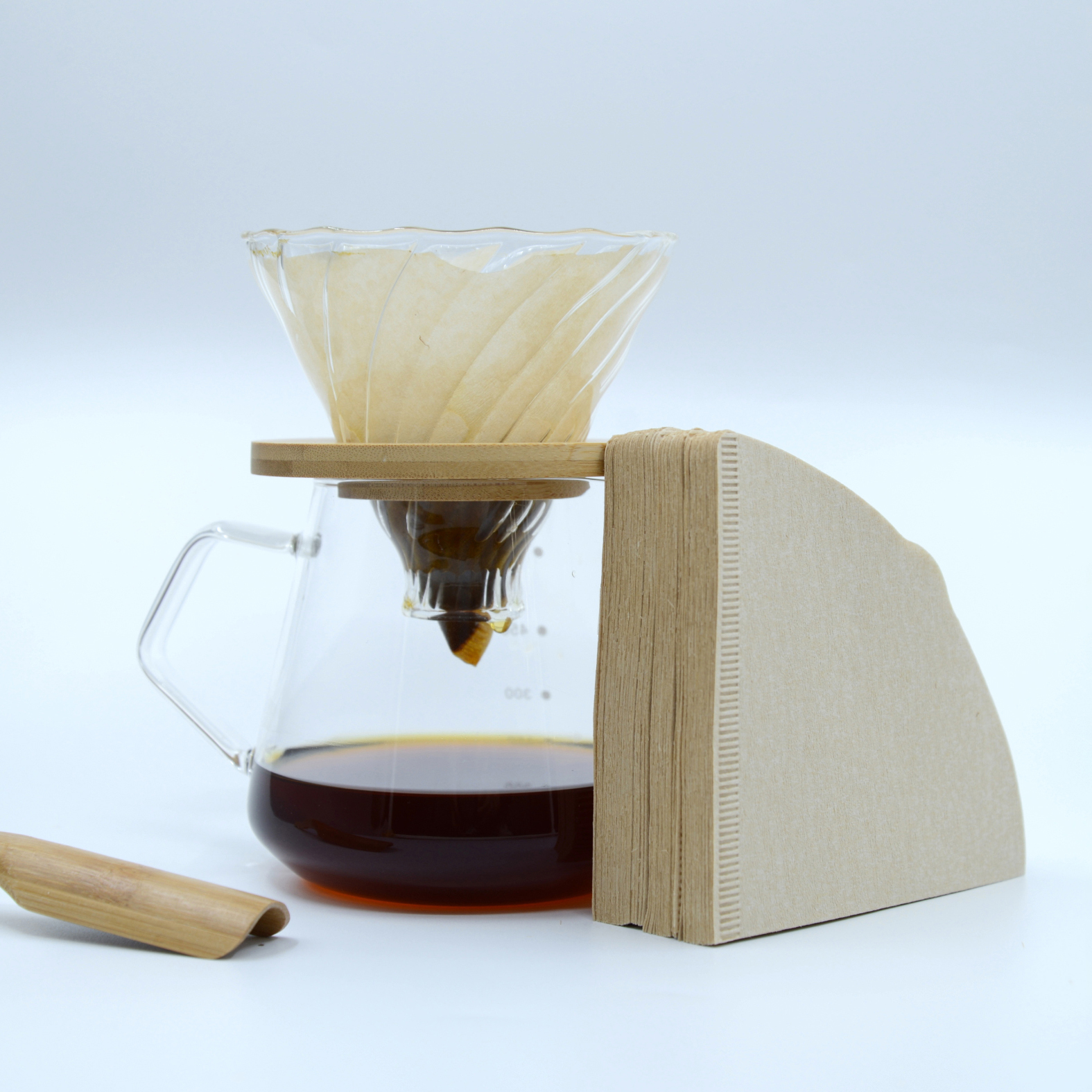When it comes to brewing the perfect cup of coffee, choosing the right coffee filter is crucial. At Tonchant, we understand the importance of quality filters to enhance the flavor and aroma of your coffee. Whether you’re a pour-over or drip coffee aficionado, here are some expert tips to help you choose the perfect coffee filter for your brewing needs.
1. Filter material
Coffee filters are available in a variety of materials, each with unique properties:
Paper Filter: This is the most common type of coffee filter and is known for its ability to produce a clean, sediment-free cup of coffee. Choose an oxygen-bleached or unbleached paper filter to avoid any unwanted chemicals leaching into your beer.
Filter Cloth: A reusable and eco-friendly option, a cloth filter allows more oils and fine particles to pass through, resulting in a richer cup of coffee. They require regular cleaning and maintenance but can add a unique flavor to your beer.
Metal Filters: Metal filters are typically made of stainless steel for durability and long-term cost savings. They allow more oil and sediment to pass through, producing a richer, more concentrated coffee with a slightly different flavor profile than paper filters.
2. Size and shape
Coffee filters come in a variety of sizes and shapes to suit different brewing devices:
Conical Filters: These filters are typically used for pour-over brewing methods, such as the V60 or Chemex. The tapered shape promotes even extraction and optimal flow rates.
Flat Bottom Filter: For drip coffee machines with a flat bottom filter basket. They provide a more even extraction and are less prone to channeling.
Basket Filter: These larger filters are used in automatic drip coffee makers. They hold larger amounts of coffee grounds and are designed for batch brewing.
3. Thickness and pore size
Consider the thickness and pore size of your coffee filter as these factors can affect the brewing process:
Thickness: Thicker filters tend to trap more oil and sediment, resulting in cleaner coffee. Thinner filters allow more oil to pass through, resulting in a richer beer.
Pore size: The pore size of the filter determines the rate of water flow and extraction. Finer pores will result in slower flow and more even extraction, while larger pores may result in a faster brew, but can also lead to over-extraction or sediment in the cup.
4. Brand and quality
Choose a reputable brand known for its quality and consistency. High-quality coffee filters are designed to prevent tearing, cracking or collapsing during the brewing process, ensuring a worry-free experience and optimal flavor extraction.
5. Environmental considerations
If sustainability is important to you, choose eco-friendly coffee filters that are biodegradable, compostable or reusable. Look for certifications like FSC (Forest Stewardship Council) or Rainforest Alliance to ensure the filter is sourced responsibly.
in conclusion
Choosing the right coffee filter is crucial to brewing a great cup of coffee. Consider factors such as filter material, size and shape, thickness and pore size, brand and quality, and environmental factors to find the perfect filter to suit your brewing preferences. At Tonchant, we offer a wide selection of high-quality coffee filters to enhance your coffee brewing experience. Explore our range today and discover the difference the perfect filter can make in your daily coffee routine.
Happy brewing!
warm regards,
Tongshang team
Post time: May-31-2024
